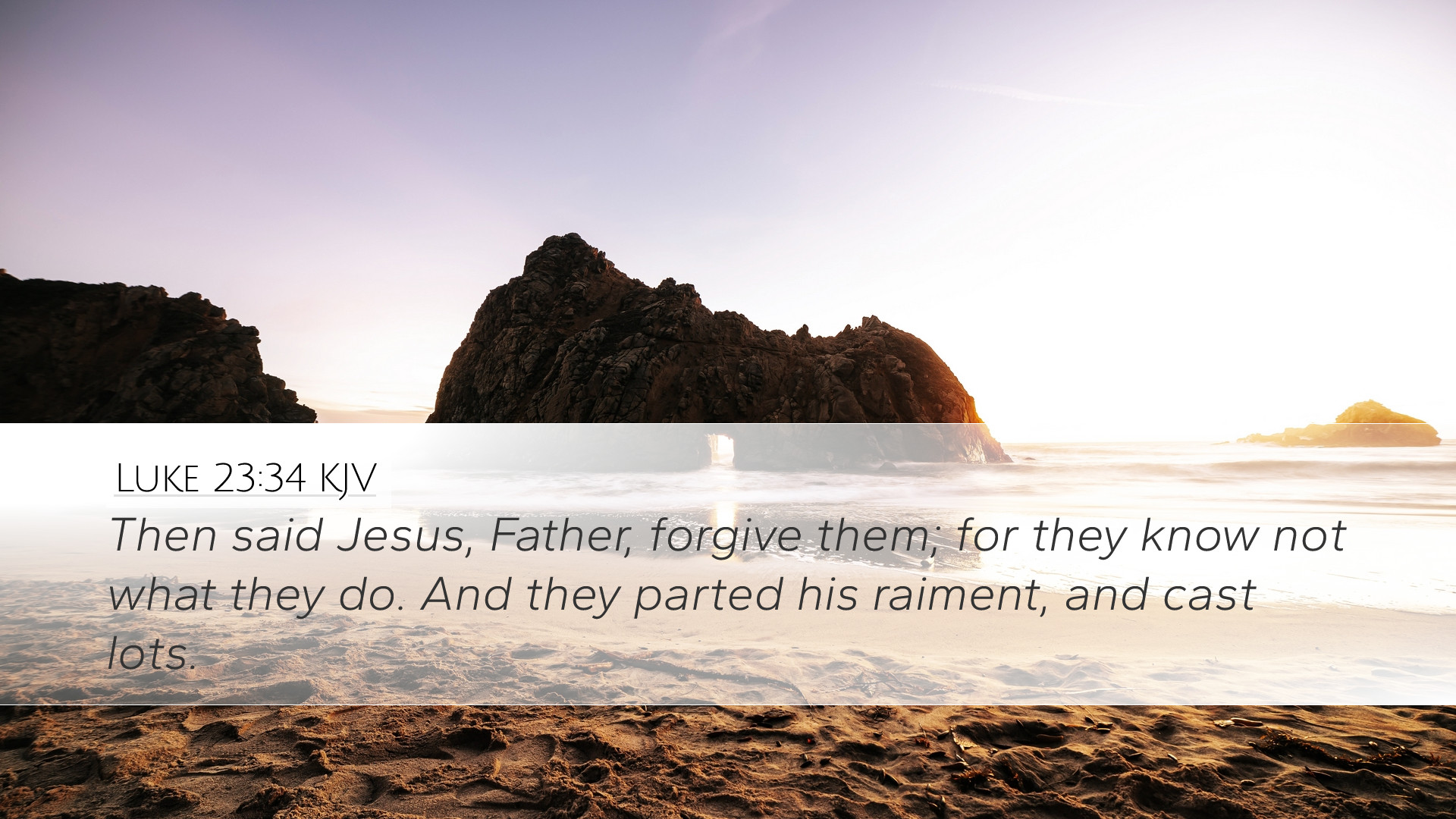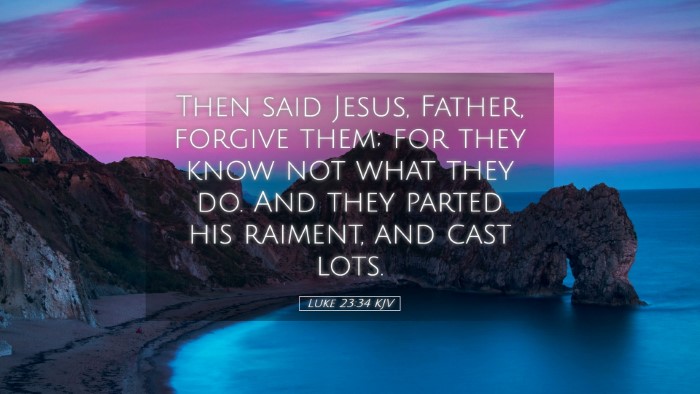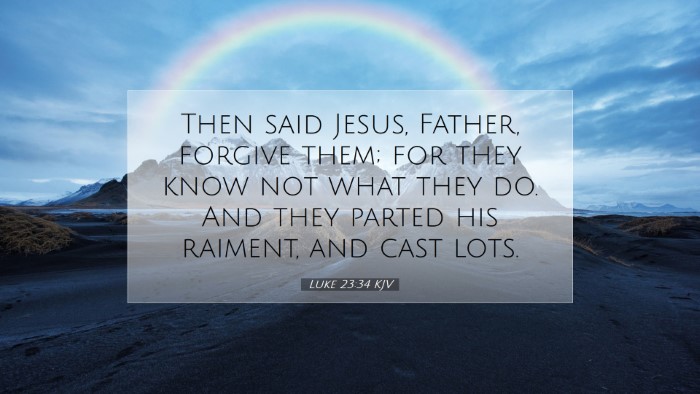Commentary on Luke 23:34
Luke 23:34 (KJV): "Then said Jesus, Father, forgive them; for they know not what they do. And they parted his raiment, and cast lots."
Introduction
This profound verse captures a pivotal moment during the crucifixion of Jesus Christ, highlighting His immense capacity for compassion and forgiveness even in the face of great suffering. This commentary seeks to synthesize insights from notable public domain commentaries, offering a rich tapestry of theological reflection suitable for pastors, students, theologians, and Bible scholars.
The Context of the Verse
Luke 23:34 occurs during the crucifixion of Christ, a climax of the redemptive narrative in the Gospels. Understanding the context is essential for grasping the depth of this plea for forgiveness.
- Setting: Jesus is being crucified, surrounded by soldiers who are indifferent to His suffering, and a mocking crowd.
- Historical Significance: The act of crucifixion was not only brutal but also a means of public humiliation. Jesus's response stands in stark contrast to the cruelty of His executioners.
- Spiritual Dimension: This moment captures the essence of Jesus's mission to seek and save the lost (Luke 19:10).
Analysis of Key Phrases
“Father, forgive them”
Matthew Henry emphasizes the familial relationship between Jesus and the Father, indicating that even in His agonizing suffering, Jesus appeals to the divine nature of forgiveness. The invocation of 'Father' suggests a deep spiritual authority and highlights Jesus's role as an intercessor.
“for they know not what they do”
Albert Barnes reflects on the ignorance of those who crucified Jesus, suggesting their actions were driven by inherent sinfulness and lack of understanding. This phrase not only shows compassion but also offers a theological basis for the need for forgiveness — all sin originates from a disconnection from divine truth.
“And they parted his raiment, and cast lots”
Adam Clarke discusses this act of casting lots as a fulfillment of prophecy (Psalm 22:18), illustrating the desolation of Jesus's situation. It simultaneously acts as a stark juxtaposition to the divine act of forgiveness. While humanity is occupied with trivialities, Christ focuses on the eternal consequence of their actions.
Theological Implications
The utterance of forgiveness from the cross is significant for several theological reasons:
- Nature of God: This verse reveals God's character as one that is merciful and forgiving, inviting believers to reflect on the boundless nature of divine grace.
- Sin and Ignorance: It emphasizes a critical aspect of human sin — the blindness that often leads to actions contrary to God's will. This underscores the importance of evangelism and teaching.
- Model of Forgiveness: Jesus exemplifies the ultimate model of forgiveness, urging His followers to extend grace to others, particularly in times of persecution and suffering (Matthew 6:14-15).
Practical Applications
For pastors and believers today, this verse presents numerous practical applications:
- Forgiveness in Personal Relationships: Encouragement to practice forgiveness even when grievous wrongs have been committed.
- Intercession for Others: Taking a cue from Jesus to pray for those who harm us, reflecting a Christ-like attitude in community and personal life.
- Understanding Human Nature: Recognizing the ignorance and sinfulness in humanity can lead to empathy rather than condemnation.
Conclusion
Luke 23:34 serves as a cornerstone for understanding the depth of Christ’s love and the essence of Christian forgiveness. In His moment of greatest suffering, Jesus exemplifies forgiveness that transcends human understanding, teaching us about grace, compassion, and the nature of God. This call to forgive resonates throughout Christian teaching and invites all who read it to emulate this profound love in their own lives.


